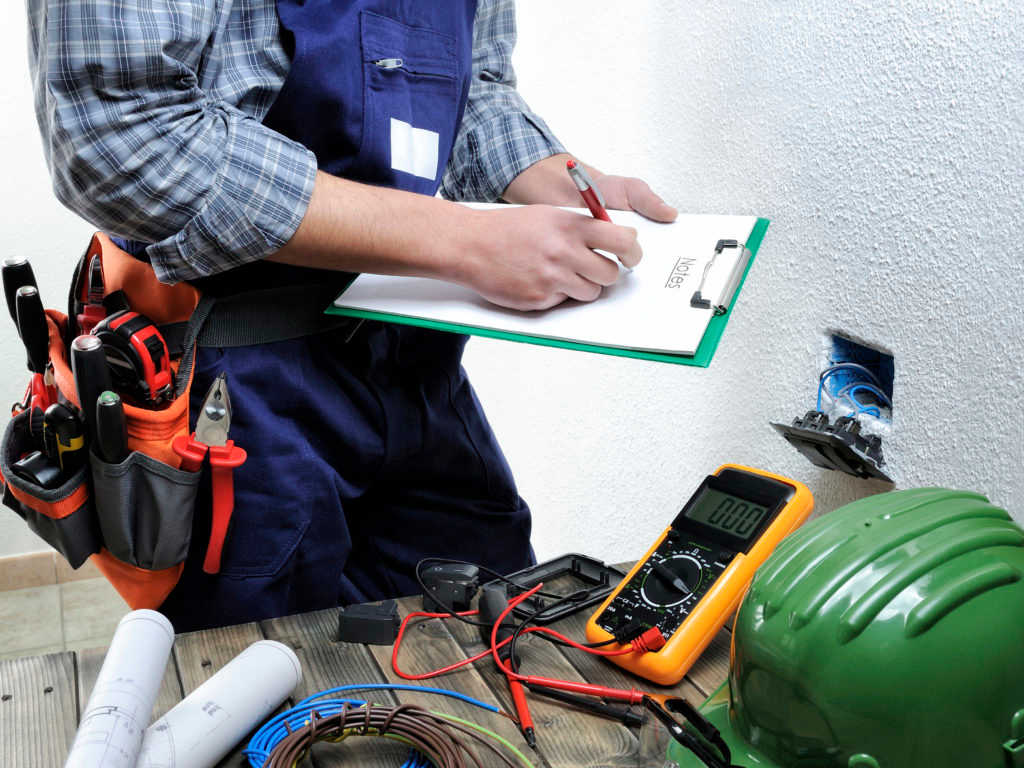Electrical Troubleshooting in Wayne, New Jersey
When electrical problems arise in your home or business, you need a reliable expert to diagnose and fix the issue promptly. Xpert Electric offers professional electrical troubleshooting services in Wayne, NJ, ensuring your electrical systems are safe, efficient, and up to code.
Call us today at (201) 393-2420 to schedule your electrical troubleshooting service.

At Xpert Electric, we understand that electrical issues can be both frustrating and dangerous. Our team of licensed electricians specializes in identifying and resolving a wide range of electrical problems, from flickering lights and faulty outlets to circuit breaker issues and wiring defects. With our straightforward pricing, you can trust that we’ll provide transparent costs without any hidden fees.
Common Electrical Problems in Wayne, NJ
Electrical issues can manifest in various ways, and it’s crucial to address them promptly to prevent potential hazards. Some common electrical problems we troubleshoot include:
- Flickering or Dimming Lights: This could indicate a poor connection or overloaded circuit.
- Frequent Circuit Breaker Trips: Regular tripping may signal a short circuit or an overloaded electrical panel.
- Dead Outlets: Non-functioning outlets might be due to wiring issues or a tripped GFCI.
- Burning Smells or Sparks: These are serious signs of electrical hazards that require immediate attention.
- Faulty Switches: Malfunctioning switches can be both inconvenient and a safety concern.
- Overloaded Circuits: Excessive electrical demand can strain your system and increase the risk of fires.
- Electrical Shocks: Any shock when plugging in or touching appliances is a sign of underlying issues.
Our Electrical Troubleshooting Services
Xpert Electric provides comprehensive electrical troubleshooting services to identify and fix any electrical issue you may encounter. Our services include:
- Diagnostic Assessments: We perform thorough inspections to pinpoint the exact cause of your electrical problems.
- Wiring Repairs: Our electricians repair or replace damaged wiring to restore safe electrical flow.
- Circuit Breaker Repairs: We address issues with your circuit breaker panel to prevent overloads and ensure proper function.
- Outlet and Switch Repairs: We repair or replace malfunctioning outlets and switches, enhancing both safety and convenience.
- Lighting Repair: We repair flickering or non-functioning lights, including fixture replacements if necessary.
- Electrical Panel Upgrades: We upgrade outdated panels to handle your current electrical needs efficiently.
- Safety Inspections: We conduct safety checks to identify potential hazards and recommend solutions.
Why Choose Xpert Electric for Electrical Troubleshooting
Choosing the right electrician is essential for effective and safe electrical repairs. Here’s why homeowners and businesses in Wayne, NJ, trust Xpert Electric:
- Experienced Electricians: Our licensed and insured electricians have extensive experience in electrical troubleshooting and repairs.
- Prompt Service: We understand the urgency of electrical issues and offer timely responses to service calls.
- Straightforward Pricing: With our transparent pricing, you receive an upfront quote with no hidden charges.
- Quality Workmanship: We are committed to delivering high-quality repairs that stand the test of time.
- Customer Satisfaction: Your safety and satisfaction are our top priorities, and we strive to exceed your expectations.
- Local Expertise: As a locally owned company, we understand the specific electrical needs of Wayne, NJ, residents.
The Importance of Professional Electrical Troubleshooting
Attempting to fix electrical problems on your own can be dangerous and may lead to more significant issues. Professional electrical troubleshooting is crucial because:
- Safety: Licensed electricians follow safety protocols to prevent electrical shocks, fires, and other hazards.
- Accurate Diagnosis: Professionals have the tools and expertise to accurately identify the root cause of electrical issues.
- Code Compliance: Electricians ensure all repairs meet local codes and regulations, avoiding potential legal issues.
- Preventative Measures: Expert troubleshooting can reveal underlying problems before they become major concerns.
- Efficiency: Professionals complete repairs efficiently, minimizing disruption to your daily routine.
Serving Wayne, NJ, and Surrounding Areas
Xpert Electric is proud to serve the Wayne, NJ, community and surrounding areas. We are dedicated to providing reliable electrical troubleshooting services to keep your home or business safe and functional.
Contact Us for Reliable Electrical Troubleshooting
Don’t let electrical issues compromise your safety or disrupt your daily life. Trust the experts at Xpert Electric for prompt and professional electrical troubleshooting services.
Call us at (201) 393-2420 to schedule your service today.
Additional Electrical Services
In addition to electrical troubleshooting, Xpert Electric offers a wide range of electrical services, including:
- Electrical Installations: From lighting fixtures to ceiling fans, we install electrical components safely and efficiently.
- Electrical Upgrades: We upgrade electrical panels and wiring systems to meet increased power demands.
- Emergency Electrical Services: Our team is available for emergency repairs to address urgent electrical issues promptly.
- Electrical Inspections: We perform comprehensive inspections for new homes, renovations, or routine safety checks.
- Outdoor and Landscape Lighting: Enhance your property’s aesthetics and security with our lighting solutions.
Straightforward Pricing You Can Trust
We believe in honest and transparent pricing. With Xpert Electric, you’ll receive a detailed estimate before any work begins, so you know exactly what to expect. No hidden fees, no surprises—just reliable electrical services at fair prices.
Contact Xpert Electric Today
At Xpert Electric, we are committed to delivering exceptional service with a focus on safety and customer satisfaction. Our electricians stay updated on the latest industry standards and use state-of-the-art equipment to ensure the highest quality workmanship. For all your electrical troubleshooting needs in Wayne, NJ, count on the professionals at Xpert Electric.
Call us today at (201) 393-2420 or contact us online to schedule an appointment with one of our trusted electricians.
